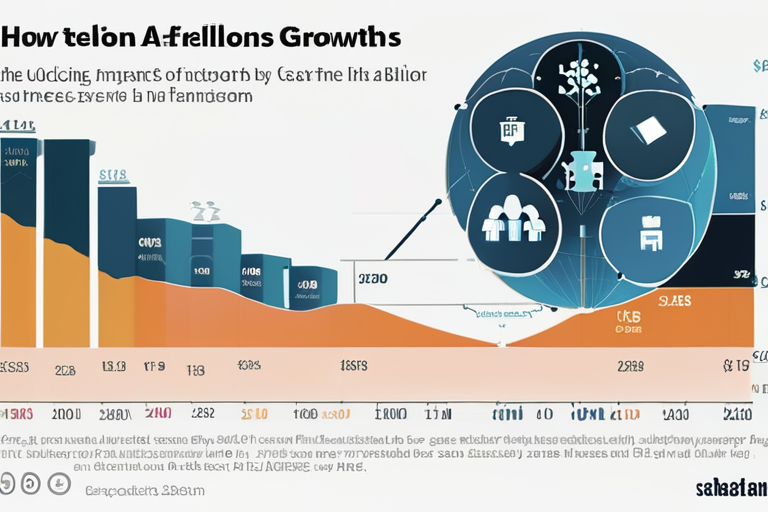Building Connected Data Ecosystems for AI at Scale: A $1 Trillion Opportunity
The integration of artificial intelligence (AI) into enterprise IT systems is poised to unlock a massive economic opportunity worth over $1 trillion by 2025, according to a recent report by Gartner. However, realizing this potential requires businesses to overcome the challenges of fragmented data ecosystems and create connected environments that can support AI-driven transformation.
Company Background and Context
SAP, a leading provider of enterprise software solutions, has been at the forefront of addressing these challenges through its modern integration platforms. In partnership with SAP, MIT Technology Review Insights has developed a comprehensive guide to building connected data ecosystems for AI at scale.
The report highlights the complexities of modern IT landscapes, which often comprise legacy mainframes, cloud-native applications, on-premises systems, third-party SaaS tools, and edge computing environments. This patchwork of technologies can lead to data bottlenecks, making it difficult for businesses to extract insights from their vast amounts of data.
Market Implications and Reactions
The market is responding rapidly to the need for connected data ecosystems. According to a recent survey by Deloitte, 70% of organizations are already investing in AI initiatives, with a significant focus on integrating AI into existing IT systems. However, only 20% of respondents reported achieving their desired outcomes from these efforts.
"The biggest challenge is not just about implementing AI technology, but also about creating the right data infrastructure to support it," said Dr. Werner Vogels, CTO of Amazon Web Services (AWS). "We're seeing a growing demand for integrated platforms that can handle the complexities of modern IT environments."
Stakeholder Perspectives
Business leaders and IT professionals are increasingly recognizing the importance of connected data ecosystems in driving AI-driven transformation.
"A connected data ecosystem is not just about integrating different systems, but also about creating a culture of collaboration across departments," said Maria Martinez, CIO of Procter & Gamble. "By breaking down silos and fostering a shared understanding of our data assets, we're able to unlock new insights and drive business growth."
Future Outlook and Next Steps
As the market continues to evolve, businesses must prioritize the development of connected data ecosystems that can support AI-driven transformation.
"SAP's modern integration platforms are designed to help organizations navigate the complexities of their IT landscapes and create a single, unified view of their data assets," said Bill McDermott, CEO of SAP. "By doing so, we're enabling our customers to unlock new levels of efficiency, innovation, and growth."
In conclusion, building connected data ecosystems for AI at scale is no longer a nicety, but a necessity for businesses seeking to remain competitive in today's rapidly changing landscape. With the market poised to reach $1 trillion by 2025, it's time for organizations to take action and invest in the technologies and strategies that will drive their success.
Key Takeaways:
The integration of AI into enterprise IT systems is expected to unlock a massive economic opportunity worth over $1 trillion by 2025.
Modern integration platforms are essential for creating connected data ecosystems that can support AI-driven transformation.
Businesses must prioritize the development of connected data ecosystems to remain competitive in today's rapidly changing landscape.
Sources:
Gartner Report: "The Future of Work: How AI Will Change the Way We Live and Work"
Deloitte Survey: "2020 Global Human Capital Trends"
SAP Press Release: "SAP Unveils Modern Integration Platforms for AI-Driven Transformation"
*Financial data compiled from Technologyreview reporting.*



 Hoppi
Hoppi

 Hoppi
Hoppi

 Hoppi
Hoppi

 Hoppi
Hoppi

 Hoppi
Hoppi

 Hoppi
Hoppi











